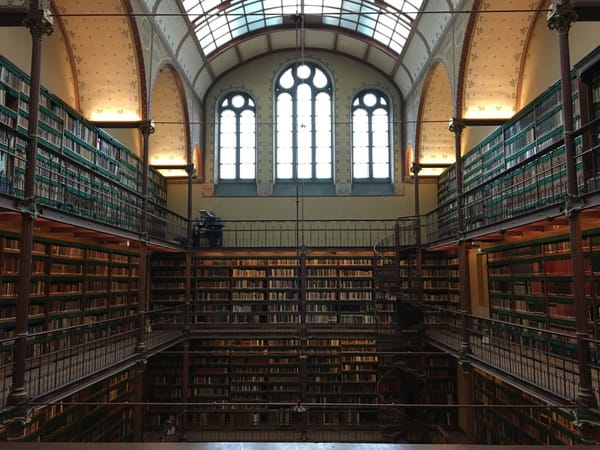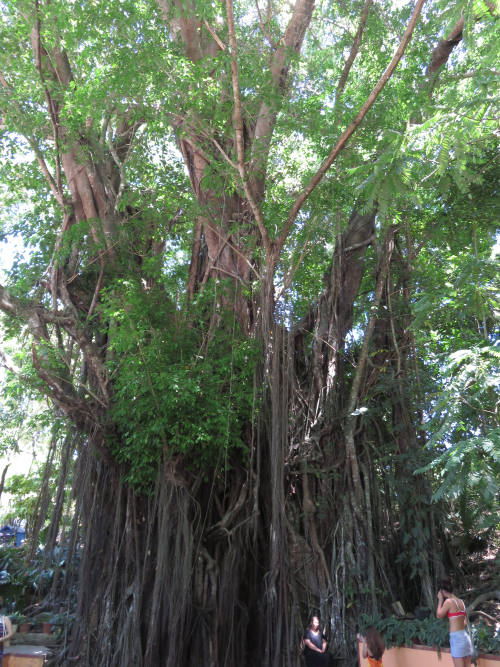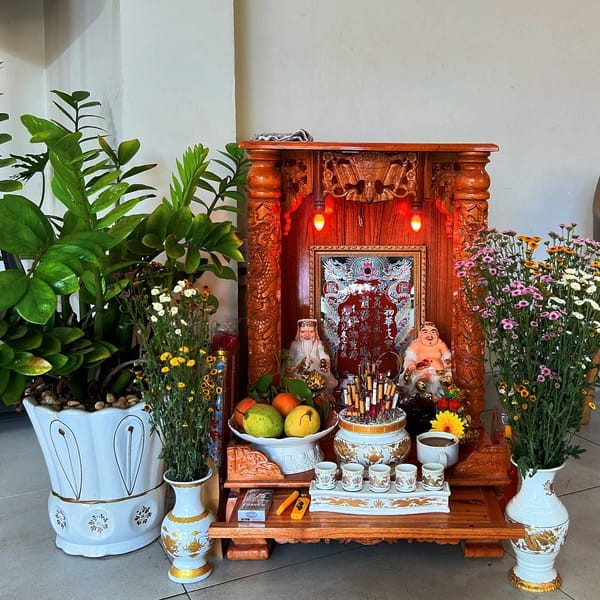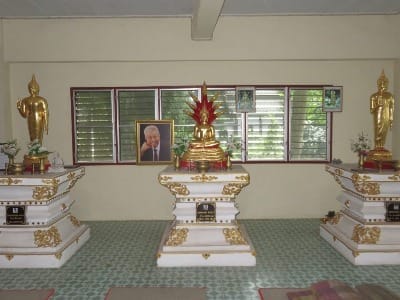did the apology change anything for indigenous communities in australia?
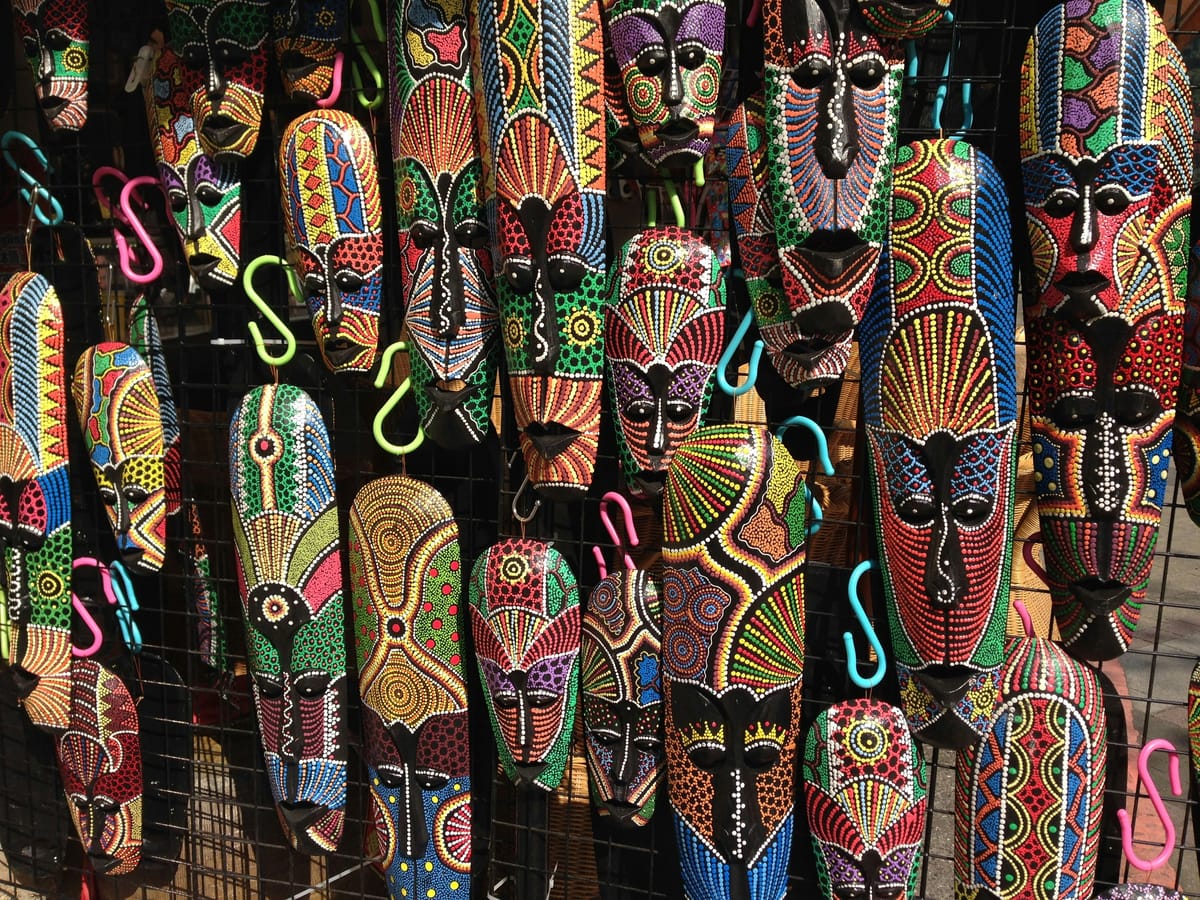
It's no secret that indigenous peoples around the globe have been dehumanised and discriminated against by their governments throughout modern history. From the First Nation people of Canada and the Americas to Aboriginal Australians and Torres-Strait Islanders, parallels exist in the systemic nature of the oppression of these peoples.
But not as many people are aware of the specifics when it comes to the Australian Aborigines.
An Incomplete History of the Mistreatment of Aboriginal Australians
Neglecting the Letters Patent
The Letters Patent, compiled by British colonial powers in 1836, outlined the province to be known as South Australia and included a clause reading “...nothing in our Letters Patent shall affect or be construed to affect the rights of any Aboriginal Natives of the said Province to the actual occupation or enjoyment in their own Persons or in the Persons of their Descendants of any Lands therein now actually occupied or enjoyed by such Natives.” In short; they agreed that in the process of colonisation, they would leave Indigenous Australians to their rightful land.
No treaties were entered into, which meant that these words were not bound by law. This formed a loophole through which traditional Indigenous land was stolen by the settlers, forming what we now know as South Australia. Neglecting to meet the promise of the Patent was described later in December 2006 by Jay Weatherill, the Minister for Aboriginal Affairs at the time, as “the cause of much loss and suffering for Aboriginal people”, and it marked the beginning of a long history of mistreatment and dehumanisation for the Aborigines.
The Stolen Generations
Between Australia’s colonisation and 1970, Aboriginal children were forcibly taken from their homes and families by the Australian state in order to assimilate them into white culture. This era was termed 'The Stolen Generations' by Peter Read in 1981. Children’s names were changed, and to speak in their native languages was forbidden . One anonymous individual, when asked about the long-term personal effects of being part of these stolen generations, described a 'hole in your heart that you can never heal’, showing the detrimental effects that this had on individuals and, by extension, the larger Aboriginal community.
Constitutional Discrepancies
Before the 1967 Indigenous Referendum, Section 51 of the constitution outlined the state’s right to ‘make laws for the peace, order and good government of the commonwealth’, but explicitly excluded Aboriginals from this, stating that their government required ‘special laws’. Also, Section 127 previously prevented Aboriginals from being counted as part of the Australian population. These acts double as an example of how the natives of Australia were alienated by the government before the referendum, which rid the constitution of these unjust acts in the late 1960s.
Loopholes in the Aboriginal Land Rights Act
The Aboriginal Land Rights Act was passed in 1976; allowing tribes to rightfully claim traditional land back from the state. Despite this though, situations such as the stolen generations, which displaced many Aborigines, meant that much of the land rightfully belonging to them remained owned by the state, because there was no way for the traditional owners to prove ownership. One woman who was part of the stolen generation, removed from her home and then sent to two boarding schools said, ‘We can’t even claim for that, because we’re not living on it. But that’s not our fault. The government took us off our land, so how can we get land rights when this is what the government has done to us?” So, while it was a significant step in the right direction, this lady's testimony exhibits the flaws within the Aboriginal Land Rights Act.
The Apology
In his speech, issued from a sitting at the Australian Parliament, Prime Minister Rudd apologises for the “pain, suffering and hurt” felt by the communities and their descendants, promising “a future where all Australians, whatever their origins, are truly equal partners with equal opportunities and an equal stake in shaping the next chapter in the history of this great country”. He refers to the era of the Stolen Generations as a ‘blemished chapter’ in Australia’s national history.
His apology is seen as a moment of colossal significance, as - despite there being some laws removed and others put in place over time to defend their rights - no actual apology had ever been spoken on such a public scale. However, the presence of the following existing discrepancies casts doubt on the apology's sincerity.
Existing Indigenous Rights Issues in Australia
Increased Number of Indigenous Children in the Care System
The apology to the stolen generations was rendered obsolete for many due to the fact that, by 2018, the number of indigenous children in care or foster families had greatly increased, with some sources claiming it had doubled over the ten years. The state would argue that the disproportionate number of Aboriginal children in the care system is simply due to the fact that the community as a whole has a larger problem with addiction, alcoholism and abuse. However, a post-colonialist would view these issues as social symptoms of the deep-rooted and lasting trauma of colonisation.
Overcrowded Housing
Another issue still painfully present in Aboriginal communities is overcrowded housing. Our Generation, a documentary on the treatment of Aboriginals, recorded conversations between an interviewer and members of the indigenous population of Galiwin’ku. There, homes are overcrowded, resulting in infectious ear and eye diseases being more easily transmissible. Trachoma is still an issue in Galiwin’ku, alongside other Aboriginal and Torres Strait Islander communities, making Australia the only developed country with active trachoma. Living in an overcrowded house is directly due to the government’s unfulfilled promises to build more housing. Even after Rudd’s Apology promised a brighter future, this shows how Australian Aborigines still suffer from governmental neglect.
Australia's Advancements Since the Apology
Australia has clearly let down its Aboriginal community in many ways since 2009. There are, however, areas in which progress has been made.
The Close the Gap Campaign
As a next step toward equity after The Apology, the Close the Gap campaign was launched, an Non-Governmental Organisation {NGO} composed of both indigenous and non-indigenous health organisations alongside other NGOs.
Their aim was to close the gap in life expectancy and overall health and quality of life between the native population and the larger population. A huge step in the right direction: the variety of voices being heard had never been so wide.
Despite being behind on their targets for a while, the campaign’s mission is back on track, as of 2018. This is undoubtedly an advancement in the way the communities are being treated today.
Signing the UNDRIP
Despite their initial refusal, Australia signed the UNDRIP a year after Rudd’s Apology, in 2009, marking their dedication to change in order to accommodate the needs of their indigenous population.
It's immeasurably important that Australia chose to reconsider their decision to fail to sign the declaration, as it not only acted as a sentiment to the community, but also made Australia more accountable for their actions; were they to contradict the declaration in future affairs.
$73 Million in Reparations
In December of 2016, the Australian district of New South Wales issued $73 million in reparations to the Aboriginal community. This was seen by many as a great gesture and symbol of dedication to change. With this money, communities could improve their standard of living greatly, closing the gap between the two groups even further.
Evidently, the treatment of this community has somewhat advanced; they now have more means of self-determination, (some) traditional land-owners were able to reclaim their rightful land, and the monetary reparations have undeniably left some positive impact.
The emotional, psychological and spiritual pain left behind by situations like the Stolen Generations, though, cannot be fixed with such material means. The most productive way forward is to heal this inter-generational trauma, which is the root cause of the domestic issues still visible within Aboriginal communities. All the policy changes and public apologies cannot erase the root issues left behind in the wake of the trauma inflicted upon this community.
Since it's unrealistic to assume this healing could be done overnight, the remaining domestic issues within Aboriginal communities seems inevitable at this point in time. However, action must be taken by the Australian government in order to proactively provide means for this healing. Suitable housing, with appropriate heads-per-home, and specific psycho-social support - as well as allowing Indigenous voices to be heard in parliament - are all integral in achieving full equity, and thus for Indigenous Australians to feel truly part of the wider community.
SOURCES/FURTHER READING:
Abc.net.au. 2007. Australia refuses to sign UN declaration on indigenous rights. [online] Available at: <https://www.abc.net.au/lateline/australia-refuses-to-sign-un-declaration-on/670978> [Accessed 16 October 2021].
Archives.sa.gov.au. n.d. The Letters Patent | State Records of South Australia. [online] Available at: <https://archives.sa.gov.au/timeline/letters-patent> [Accessed 7 October 2021].
Australianstogether.org.au. 2021. The Stolen Generation | Australians Together. [online] Available at: <https://australianstogether.org.au/discover/australian-history/stolen-generations> [Accessed 4 October 2021].
BBC News. 2017. Australia rejects indigenous 'voice' in parliament. [online] Available at: <https://www.bbc.co.uk/news/world-australia-41759619> [Accessed 16 October 2021].
Blakemore, E., 2021. A century of trauma at U.S. boarding schools for Native American children. [online] National Geographic. Available at: <https://www.nationalgeographic.com/history/article/a-century-of-trauma-at-boarding-schools-for-native-american-children-in-the-united-states> [Accessed 1 October 2021].
Brennan, B., 2017. Government advised to hold referendum on Indigenous 'Voice to Parliament'. [online] Abc.net.au. Available at: <https://www.abc.net.au/news/2017-07-17/referendum-council-advises-vote-on-indigenous-voice-parliament/8716242> [Accessed 16 October 2021].
Commonground.org.au. 2021. The Stolen Generations. [online] Available at: <https://www.commonground.org.au/learn/the-stolen-generations> [Accessed 7 October 2021].
Conifer, D., Brennan, B., Higgins, I., Crothers, J. and Wellington, S., 2017. Indigenous advisory body rejected by PM in 'kick in the guts' for advocates. [online] Abc.net.au. Available at: <https://www.abc.net.au/news/2017-10-26/indigenous-advisory-body-proposal-rejected-by-cabinet/9087856> [Accessed 16 October 2021].
Corry, S., 2011. Do indigenous peoples benefit from 'development'?. [online] The Guardian. Available at: <https://www.theguardian.com/global-development/poverty-matters/2011/nov/25/indigenous-peoples-benefit-development-tribal> [Accessed 1 October 2021].
Courses.lumenlearning.com. n.d. Cultural Relativism | Cultural Anthropology. [online] Available at: <https://courses.lumenlearning.com/culturalanthropology/chapter/cultural-relativism/> [Accessed 4 November 2021].
Declaration.humanrights.gov.au. n.d. Declaration on the Rights of Indigenous Peoples |. [online] Available at: <https://declaration.humanrights.gov.au/> [Accessed 7 October 2021].
Govier, T., 2006. Taking Wrongs Seriously: Acknowledgement, Reconciliation, and
The Politics of Sustainable Peace. New York: Humanity Books.
Healingfoundation.org.au. 2021. Fact Sheet: What was the Bringing Them Home report?. [online] Available at: <https://healingfoundation.org.au/app/uploads/2017/04/BTH20-Fact-Sheet-1.pdf> [Accessed 7 October 2021].
Health.gov.au. 2021. Addressing Trachoma. [online] Available at: <https://www.health.gov.au/initiatives-and-programs/addressing-trachoma> [Accessed 7 October 2021].
Humanrights.gov.au. n.d. Bringing them Home Report (1997) | Australian Human Rights Commission. [online] Available at: <https://humanrights.gov.au/our-work/bringing-them-home-report-1997> [Accessed 4 October 2021].
Humanrights.gov.au. n.d. Bringing them Home - Chapter 11 | Australian Human Rights Commission. [online] Available at: <https://humanrights.gov.au/our-work/bringing-them-home-chapter-11> [Accessed 7 October 2021].
Humanrights.gov.au. 2021. Close the Gap: Indigenous Health Campaign | Australian Human Rights Commission. [online] Available at: <https://humanrights.gov.au/our-work/aboriginal-and-torres-strait-islander-social-justice/projects/close-gap-indigenous-health> [Accessed 7 October 2021].
Humanrights.gov.au. n.d. Bringing them Home - Chapter 26 | Australian Human Rights Commission. [online] Available at: <https://humanrights.gov.au/our-work/bringing-them-home-chapter-26> [Accessed 4 October 2021].
Karp, P., 2018. Closing the Gap targets in childhood mortality and early education back on track. [online] The Guardian. Available at: <https://www.theguardian.com/australia-news/2018/feb/12/closing-the-gap-targets-in-childhood-mortality-and-early-education-back-on-track> [Accessed 2 November 2021].
Knaus, C., 2016. Stolen generations survivors to get $73m in NSW compensation package. [online] the Guardian. Available at: <https://www.theguardian.com/australia-news/2016/dec/02/stolen-generations-survivors-to-get-73m-in-nsw-compensation-package> [Accessed 16 October 2021].
Lawry, C. 2010. Moving Beyond The Apology: Achieving Full and Effective Reparations for the Stolen Generations . Australian Indigenous Law Review, 14(2), 83–99.
Mitchell, T. and Enns, C., 2014. THE UN DECLARATION ON THE RIGHTS OF INDIGENOUS PEOPLES: MONITORING AND REALIZING INDIGENOUS RIGHTS IN
CANADA. [online] Available at: <http://www.jstor.org/stable/resrep05227> [Accessed 2 November 2021].
Nair, S., 2017. Introducing Postcolonialism in International Relations Theory. [online] E-International Relations. Available at: <https://www.e-ir.info/2017/12/08/postcolonialism-in-international-relations-theory/> [Accessed 16 October 2021].
Nma.gov.au. 2021. Aboriginal Land Rights Act. [online] Available at: <https://www.nma.gov.au/defining-moments/resources/aboriginal-land-rights-act> [Accessed 7 October 2021].
Nma.gov.au. 2021. Indigenous referendum. [online] Available at: <https://www.nma.gov.au/defining-moments/resources/indigenous-referendum> [Accessed 7 October 2021].
Ohchr.org. n.d. OHCHR | Universal Declaration of Human Rights Main. [online] Available at: <https://www.ohchr.org/en/udhr/pages/udhrindex.aspx> [Accessed 7 October 2021].
Paul, M., 2013. Letters Patent | Adelaidia. [online] Adelaidia.history.sa.gov.au. Available at: <https://adelaidia.history.sa.gov.au/subjects/letters-patent> [Accessed 7 October 2021].
Pc.gov.au. n.d. Child Protection Services. [online] Available at: <https://www.pc.gov.au/research/ongoing/report-on-government-services/2018/community-services/child-protection/rogs-2018-partf-chapter16.pdf> [Accessed 16 October 2021].
Peter, R (1981) ‘The Stolen Generations:The Removal of Aboriginal Children in New South Wales 1883 to 1969’, (Occasional Paper No 1, NSW Ministry of Aboriginal Affairs)
Samemory.sa.gov.au. 2015. Aboriginal Rights Page 6. [online] Available at: <https://www.samemory.sa.gov.au/site/page.cfm?u=656> [Accessed 7 October 2021].
Tikkanen, A., 2021. Kevin Rudd | Biography, Facts, & Apology Speech. [online] Encyclopedia Britannica. Available at: <https://www.britannica.com/biography/Kevin-Rudd> [Accessed 4 October 2021].
Saunders, I., 2018. Post-colonial Australia: Fact or fabrication?. [online] epress.lib.uts.edu.au. Available at: <https://epress.lib.uts.edu.au/student-journals/index.php/NESAIS/article/view/1474/1587> [Accessed 16 October 2021].
The Guardian. 2019. Richard Weston | The Guardian. [online] Available at: <https://www.theguardian.com/profile/richard-weston> [Accessed 16 October 2021].
Torpey, J., 2003. Reparation Politics in the 21st Century. [online] Available at: <https://scholar.valpo.edu/cgi/viewcontent.cgi?article=1002&context=twls> [Accessed 11 October 2021].
Uluru Statement from the Heart. n.d. The Statement — Uluru Statement from the Heart. [online] Available at: <https://ulurustatement.org/the-statement> [Accessed 16 October 2021].
Un.org. 2008. United Nations Declaration on the Rights of Indigenous Peoples. [online] Available at: <https://www.un.org/esa/socdev/unpfii/documents/DRIPS_en.pdf> [Accessed 2 November 2021].
Wahlquist, C., 2018. Indigenous children in care doubled since stolen generations apology. [online] The Guardian. Available at: <https://www.theguardian.com/australia-news/2018/jan/25/indigenous-children-in-care-doubled-since-stolen-generations-apology> [Accessed 16 October 2021].
Weston, R., 2018. The gap won't close until we address intergenerational trauma | IndigenousX. [online] the Guardian. Available at: <https://www.theguardian.com/commentisfree/2018/feb/12/the-gap-wont-close-until-we-address-intergenerational-trauma> [Accessed 16 October 2021].
Youtube.com. 2012. Our Generation - Full length version (2010, 73min). [online] Available at: <https://www.youtube.com/watch?v=Tcq4oGL0wlI&t=596s> [Accessed 7 October 2021].
Youtube.com. 2008. Sorry, Kevin Rudd's Apology to "The Stolen Generation". [online] Available at: <https://www.youtube.com/watch?v=b3TZOGpG6cM> [Accessed 4 October 2021].


